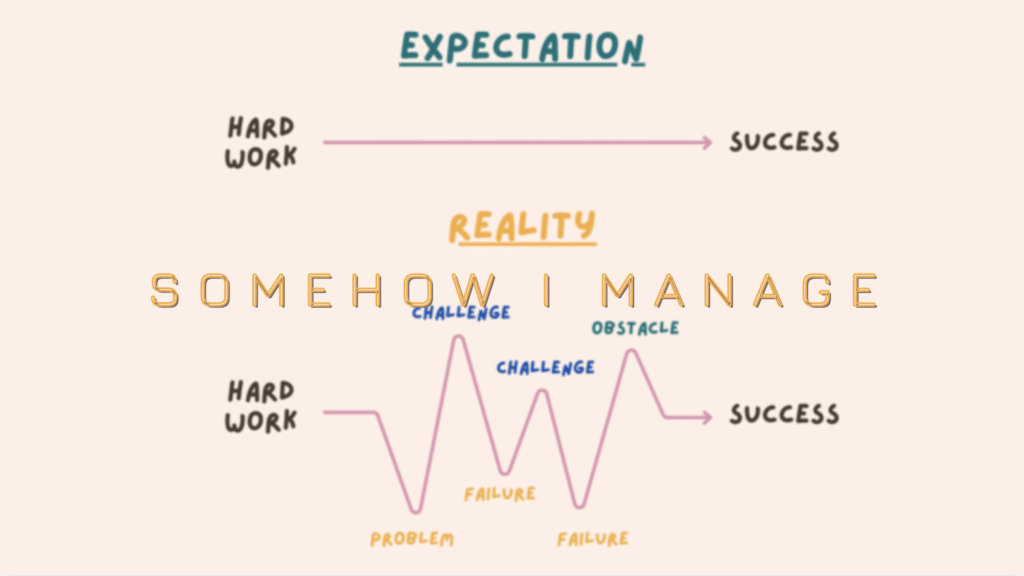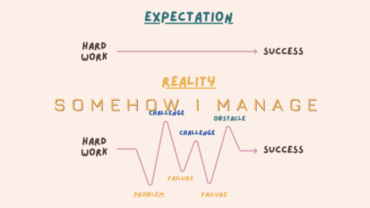By Britt Yenser
As HETMA embarks on the #Roadto10K, this journey is about more than just growing our numbers—it’s about supporting the personal and professional growth of each member. Every month, we’ll explore a new theme centered on reflection, growth, mental health, and confidence. If the themes ever feel overwhelming, this column will offer them in small, approachable steps to help you engage at your own pace.
October’s theme is:
ROADWORK AHEAD:
Handling failure
Redefine failure as feedback. Share lessons learned, normalize mistakes, and reinforce that missteps are actually a sign you are moving forward.
True story: As a teenager, when someone asked me my biggest fear, I answered, “Failure”—and even teared up admitting it. That fear stuck with me until my first career with Teach for America, where I learned about “failing forward.” It changed everything. I realized failure isn’t a personal, fatal flaw—it’s a chance to grow. If failure still gives you that dreaded tummy-ache feeling, maybe it’s time to see it as progress in disguise. Let’s unpack how we can redefine failure, and see it the way Bob Ross did:
We don’t make mistakes, we have happy accidents-Bob Ross, The Joy of Painting
1- HETMA Chair Erin Maher-Moran keeps a Q-tip taped to her monitor to remind herself: Quit Taking It Personally. Such a simple, powerful cue for all things business—especially when it comes to failure. If you treat failure as a reflection of your worth, fear will keep you stuck. But when you step back and see it neutrally, it becomes just another chance to learn and move forward.
2- Focus on outcomes: every misstep is simply a lesson in how to get it right. That’s the spirit behind the entrepreneurial phrase “fail fast, fail often”—the faster you learn what doesn’t work, the quicker you discover what does.
3- Be open about the what’s, how’s, and lessons learned: What went wrong? How are we fixing it? What will we do differently next time? I even keep a running “LL” list—anytime something doesn’t go as smoothly as planned, it goes on there. When it’s helpful, I share my lessons learned with my team so they see I’m always learning and growing alongside them.
4- Be thoughtful in your apologies. If your mistake impacts someone, share what you’ve learned and how you’re fixing it. Communicate with warmth and accountability—without slipping into martyr mode. Remember: failure isn’t personal.
Failure isn’t the end of the story—it’s part of the process. When we stop taking it personally, focus on outcomes, share our lessons, and own our impact with humility, failure shifts from something to fear into something to embrace. The more we practice failing forward, the stronger, wiser, and more resilient our work—and our teams—become.












